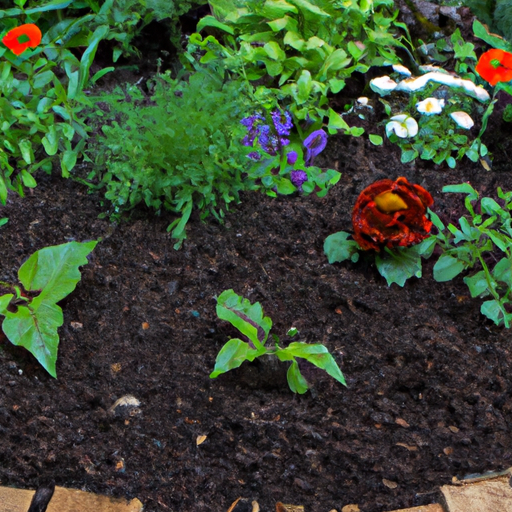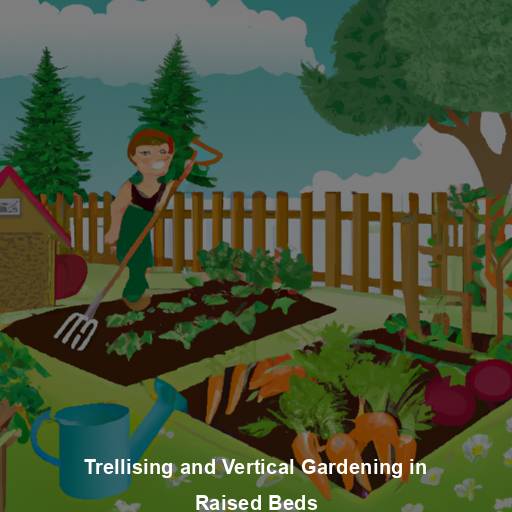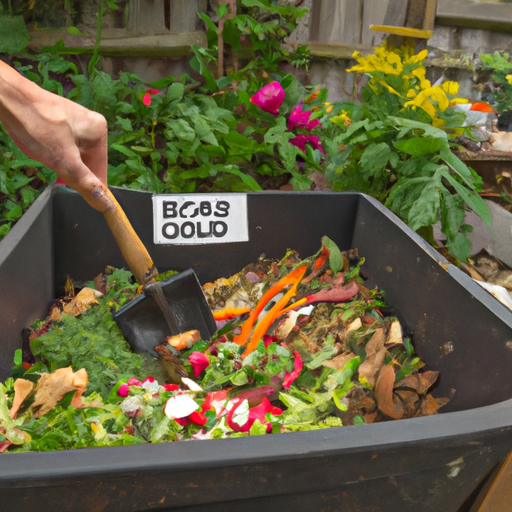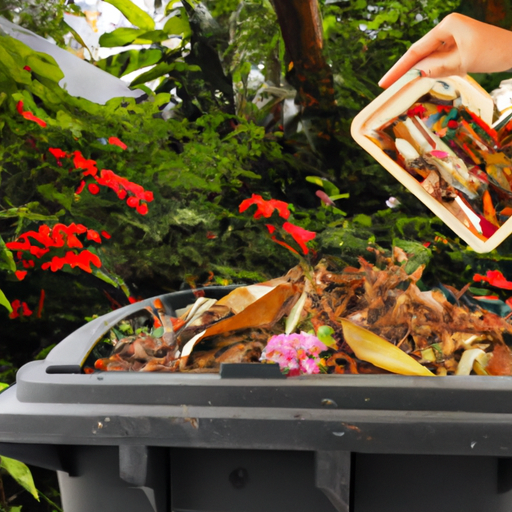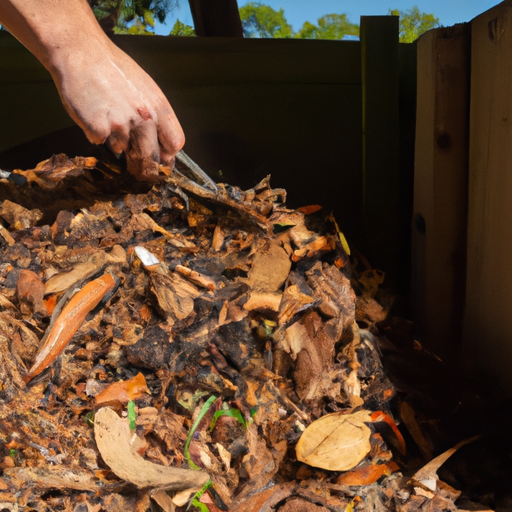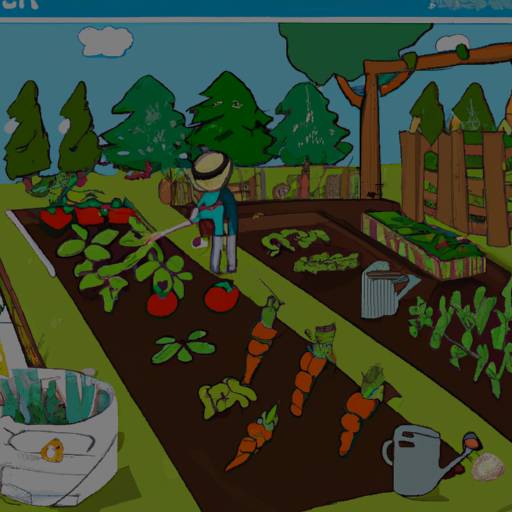Hey there fellow gardeners! As a Master Gardener, I know how important it is to have healthy soil in order to grow a thriving garden.
One of the best ways to achieve this is through using organic soil amendments. Organic soil amendments are natural materials that can be added to your garden soil to improve its structure and fertility.
These can include things like compost, manure, bone meal, and worm castings. By adding these organic materials into your soil, you’ll not only be nourishing your plants but also supporting the health of the microorganisms living in your soil.
In turn, this will help create a more sustainable and resilient ecosystem within your garden. So let’s dive deeper into the benefits of organic soil amendments and how they can help you grow a healthier garden!
Understanding The Importance Of Soil Health
As a Master Gardener, understanding the importance of soil health is crucial for any successful garden. Soil provides plants with essential nutrients and water needed for growth, so it’s no surprise that healthy soil equals healthy plants.
However, not all soils are created equal and signs of unhealthy soil can include poor drainage, compaction, lack of organic matter, or an excess of chemicals. Therefore, taking steps to improve your soil’s health through natural means such as using organic soil amendments is vital for creating a thriving garden ecosystem.
Remember that soil health matters and investing in it will pay off in the long run by providing healthier plants and higher yields without harming the environment.
Types Of Organic Soil Amendments
Understanding the importance of soil health is crucial for maintaining a healthy and productive garden. However, even with proper care, your soil may still require extra nutrients to thrive. This is where soil amendment application comes in handy.
Adding organic matter to your soil can improve its structure, fertility, and water-holding capacity. Here are three of the best organic additives that you can use:
1. Compost: Made from decomposed plant material, compost adds beneficial microorganisms and essential nutrients to your soil.
2. Manure: A great source of nitrogen, phosphorus, and potassium, manure also improves soil moisture retention.
3. Bone Meal: High in phosphorous, bone meal promotes root growth and flower development.
When choosing which type of organic soil amendments to add to your garden beds or containers, consider factors such as pH level and nutrient deficiencies specific to your plants’ needs. Remember not to overdo it; too much of a good thing can be harmful.
With these tips in mind, you’ll be on your way to a thriving garden in no time!
Compost: The Ultimate Soil Superfood
Composting is the process of breaking down organic matter into nutrient-rich soil. It’s a cost-effective way to create your own fertilizer for a healthy garden. There are different composting techniques, but all involve mixing green and brown materials such as grass clippings, leaves, food scraps, and twigs. With proper care, your compost will be ready in 3-12 months.
To get started with composting, find an appropriate location that has good drainage and plenty of airflow. A simple bin or pile can work for small gardens while larger gardens may require more space. Add layers of browns (such as dead leaves) and greens (like kitchen waste), ensuring they’re evenly distributed to avoid compacting the pile.
Once you have created your compost, it’s time to use it! Compost benefits include increasing soil fertility, improving water retention, reducing erosion by stabilizing slopes and preventing runoff from heavy rains. You can also make compost tea by steeping finished compost in water overnight; this provides an easy-to-use liquid fertilizer high in nutrients.
In summary, learning how to properly create and use compost can help improve the health of your garden significantly. Not only does it save money on fertilizers but also creates healthier plants that produce better yields while being environmentally friendly at the same time. So start composting today!
Using Manure And Bone Meal For Nutrient Boosts
Compost, as we discussed in the previous section, is indeed the ultimate soil superfood. However, it’s not the only organic amendment that can help you achieve a healthy garden.
Using seaweed extract and mushroom compost are two other options to consider. Seaweed extract is rich in trace minerals, growth hormones, and amino acids that work together to promote plant health and vitality. It also helps increase resistance to pests and diseases while improving soil structure.
Mushroom compost, on the other hand, adds valuable nutrients like nitrogen, phosphorus, and potassium to the soil. It also contains beneficial microorganisms that aid in decomposition and create an ideal environment for plants.
When using seaweed extract or mushroom compost, make sure to follow application instructions carefully to avoid overuse or underuse of these amendments. Adding too much seaweed extract may cause excessive growth or even harm your plants due to its high salt content. On the other hand, applying too little mushroom compost may not provide adequate nutrient boost needed by your crops.
Incorporating both seaweed extract and mushroom compost into your gardening routine can lead to healthier soil with better water retention capacity and improved drainage properties. Your plants will thrive with access to all the necessary nutrients they need without relying on synthetic fertilizers or harmful chemicals.
As a master gardener, I highly recommend using natural remedies such as seaweed extract and mushroom compost for a sustainable approach towards gardening that benefits both our environment and our health!
The Benefits Of Worm Castings For Soil Health
As a Master Gardener, I highly recommend the use of worm castings as an organic soil amendment for a healthier garden.
Not only are they rich in nutrient density but they also promote plant growth by improving soil structure and water retention.
Worm castings contain essential nutrients such as nitrogen, phosphorus, and potassium that plants need to thrive.
In addition, their slow-release nature ensures that these nutrients are released gradually over time instead of all at once, preventing any potential harm to your plants.
Furthermore, worm castings help improve soil texture by enhancing its ability to retain moisture while still allowing air to circulate properly – this is important since healthy roots require both water and oxygen.
By incorporating worm castings into your gardening routine, you’ll be providing your plants with the necessary tools they need to flourish without having to resort to synthetic fertilizers or harmful chemicals.
Frequently Asked Questions
Can I Use Chemical Fertilizers In Conjunction With Organic Soil Amendments?
Combining fertilizers can have both benefits and drawbacks. While organic soil amendments are a great way to improve the health of your garden, they may not provide all the necessary nutrients that plants need to thrive.
This is where chemical fertilizers come in – they can supplement the natural nutrients provided by organic amendments. However, it’s important to use chemical fertilizers sparingly as overuse can lead to environmental pollution and harm beneficial microorganisms in the soil.
When choosing between organic vs synthetic fertilizers, it ultimately comes down to personal preference and gardening practices. Organic options tend to be more sustainable and environmentally friendly while synthetics offer quicker results but at a cost.
As a Master Gardener, my recommendation would be to prioritize using organic soil amendments first before considering adding any chemicals into the mix.
Is It Necessary To Amend Soil Every Year Or Can I Do It Every Few Years?
It’s a common question among gardeners: how often should I amend my soil?
While there is no one-size-fits-all answer, it’s generally recommended to amend your soil every few years rather than annually. This allows the long-term effects of regular soil amendment to take hold and gives time for organic matter to break down and enrich the soil.
However, certain factors such as crop rotation or heavy nutrient depletion may require more frequent amending. Remember that adding too much organic matter at once can also have negative consequences, so it’s important to monitor your soil regularly and adjust accordingly.
As with all aspects of gardening, patience and consistency are key when it comes to achieving a healthy and thriving garden ecosystem.
Are There Any Precautions I Should Take When Using Manure As A Soil Amendment?
When using manure as a soil amendment, it is important to take precautions to ensure the safety of your garden.
Did you know that improper handling or application of manure can lead to the spread of harmful pathogens and bacteria?
As an organic gardener, it is crucial to prioritize soil safety by properly composting manure before use and avoiding fresh manure applications during growing season.
Remember, healthy plants start with healthy soil!
Incorporating manure amendments into your gardening routine can be incredibly beneficial, but only when done safely and responsibly.
How Long Does It Take For Compost To Break Down And Become Usable As A Soil Amendment?
Ah, composting! It’s a fantastic way to recycle your kitchen scraps and yard waste into nutrient-rich soil amendment for your garden.
But how long does it take for compost to break down? Well, that depends on several factors, including the composting methods you use and what materials you’re using.
Generally speaking, though, it can take anywhere from 3-12 months for compost to become usable as a soil amendment.
The benefits of using compost in gardening are abundant – not only does it improve soil structure and water-holding capacity, but it also adds essential nutrients that plants need to thrive.
So if you’re thinking about starting a compost pile, go ahead and give it a try! Your garden (and the planet) will thank you.
Can I Use Worm Castings As The Sole Soil Amendment Or Should I Combine It With Other Organic Amendments?
Did you know that worm castings contain five times more nitrogen, seven times more phosphorus, and 11 times more potassium than ordinary soil? That’s just one of the many benefits of vermicomposting.
When it comes to using worm castings as a sole soil amendment or combining it with other organic amendments, there are different schools of thought. As a Master Gardener, I recommend using worm castings in combination with other organic matter such as compost or leaf mold for best results.
However, if you’re making your own worm castings at home, they can be used as the sole soil amendment. Just make sure to add them sparingly and mix well before planting.
Conclusion
In conclusion, utilizing organic soil amendments is a great way to promote the health and productivity of your garden. While chemical fertilizers can be used in conjunction with these amendments, it’s important to prioritize natural solutions whenever possible.
As for frequency of amending, every few years may suffice depending on the specific needs of your plants and soil. When using manure as an amendment, it’s crucial to take precautions such as ensuring proper composting has occurred and avoiding contact with edible portions of crops.
Compost can become usable within a matter of months but some materials may take longer to break down than others. And while worm castings are highly beneficial, they should ideally be combined with other organic amendments for optimal results.
Remember, gardening involves trial and error – what works well one year may not work as effectively the next. However, by prioritizing natural methods and being mindful of best practices when using organic soil amendments, you’ll set yourself up for success. Happy gardening!
